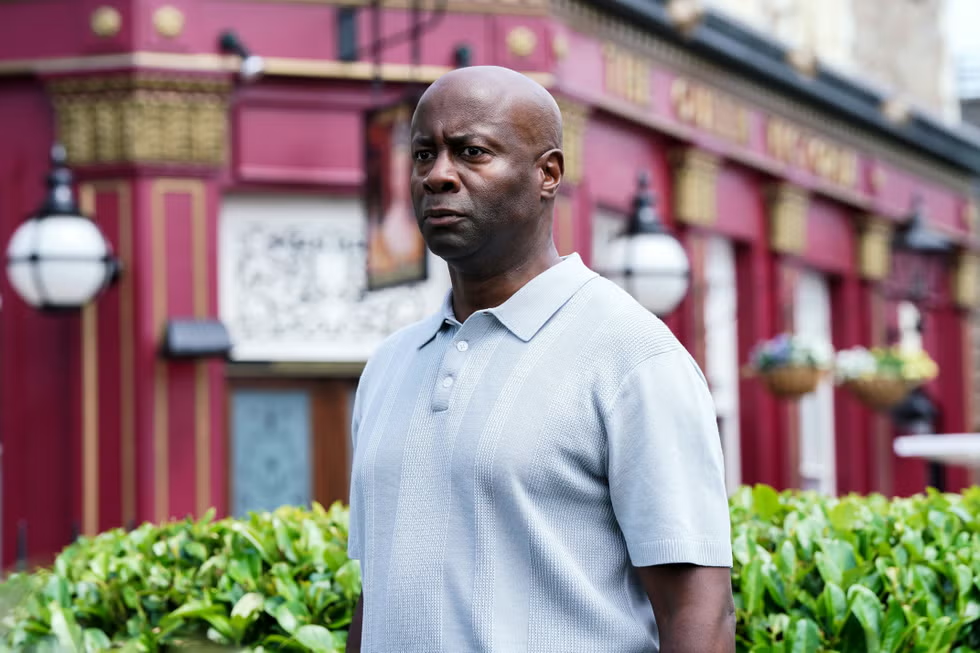Hey everyone, welcome back to the channel. Today, we’re diving deep into the wild world of Yellowstone and its ever-expanding empire. Taylor Sheridan just dropped another spin-off announcement and the internet is buzzing—but not everyone is thrilled. Are we riding high on a golden wave, or is this Yellowstone train about to derail under the weight of too many spin-offs?
A New Chapter, A Dangerous Shift
When CBS officially greenlit Why Marshals, fans were hit with a strange cocktail of anticipation and fatigue. What began as a character-driven saga rooted in the Dutton family’s ruthless grip on the Montana ranching frontier has now become a sprawling universe spanning centuries—and Why Marshals is the latest ambitious branch.
Unlike its predecessors, Why Marshals doesn’t revolve around the Duttons—at least not directly. Instead, it focuses on the lawmen who operate in the shadows of this turbulent world, navigating moral gray zones and the blurred line between justice and vengeance. It’s a bold pivot, and if handled with the emotional depth Sheridan is known for, it could infuse fresh blood into a franchise teetering on the edge of overexposure.
The stakes here are not just about gunfights and cowboy codes—it’s about power, legacy, and what happens when justice becomes a weapon wielded by flawed men.
Law and Loyalty: Themes That Could Define the Series
Sheridan’s brilliance has always been in deconstructing myths—cowboys as brutal kings, families as warring dynasties, and justice as a shifting mirage. Why Marshals has the opportunity to take this one step further.
Rather than romanticizing the badge, the show may peel back the layers of authority, asking difficult questions: Who watches the watchers? Who decides what justice looks like when it’s enforced by those with their own scars, secrets, and sins?
Expect the series to explore how loyalty can be manipulated, how law can become a mask for control, and how the so-called protectors of order may become the very source of chaos. If Yellowstone was about preserving a kingdom, Why Marshals may be about dismantling or policing that kingdom—perhaps even at war with its legacy.
Timeline Twists and Ties to the Original Saga
While official timelines remain vague, industry whispers hint that Why Marshals will unfold in the present-day Yellowstone timeline, possibly overlapping with or following the end of the flagship series. This opens up tantalizing doors for cameos, crossovers, and the subtle threading of old characters into new plots.
Could we see a disillusioned Kayce Dutton consult with these Marshals? Might Monica or even Rip find themselves tangled in a federal investigation? Sheridan has always been a master of planting narrative seeds that bloom across timelines. This show may act not just as a spin-off, but a vital connective tissue linking the sprawling Yellowstone saga into a cohesive whole.
As Yellowstone bows out and Kevin Costner steps away, Why Marshals could carry the torch—if not for the Duttons, then for the world they helped shape.
Fan Fatigue vs. Franchise Future
The announcement of Why Marshals hasn’t been met with universal excitement. Online forums lit up—not just with curiosity, but with frustration. Fans worry the franchise is growing too fast, too thin. “Another one?” one Redditor asked. “Feels more like a factory than a story now.”

That’s the risk Sheridan now faces. What once felt intimate and deliberate now threatens to resemble an over-saturated streaming lineup. The heart-pounding tension of 1883, the elegance of 1923, and the unfiltered grit of Yellowstone could be diluted if audiences feel bombarded rather than immersed.
Even loyalists are starting to ask the dreaded question: when everything is Yellowstone, is anything Yellowstone anymore?
But Sheridan has silenced critics before. He’s built an empire not just on western clichés, but on complex characters and devastating emotional stakes. If he can infuse Why Marshals with the same layered writing and high-stakes moral ambiguity, this new chapter could reinvigorate the brand rather than bury it.
Beyond the Duttons: A World Worth Watching?
Sheridan’s move to shift away from the Dutton name signals something bigger. Why Marshals isn’t just another spin-off—it’s potentially the dawn of a second era in the Yellowstone universe. Instead of clinging to one family tree, he’s expanding the forest.
This is a creative gamble. Letting go of the Duttons—who’ve anchored this emotional storm for years—could alienate some fans. But it could also free up storytelling potential, allowing entirely new families, new legacies, and new scars to emerge.
If Sheridan can successfully pivot from legacy to law—while keeping the emotional core intact—Why Marshals might not just be a worthy addition to the franchise. It might be the key to its long-term survival.
The Bigger Picture: Legacy or Oversaturation?
At its best, Yellowstone is not just a western—it’s Shakespeare in boots. Betrayals cut deeper than bullets, love is both salvation and doom, and every character carries a history written in blood and sacrifice.
The danger now is in dilution. Sheridan has more ideas than time, and with Four Sixes, 1944, and Why Marshals on the horizon, the emotional gravity that made the original series so gripping is at risk of being spread too thin.
Still, if Why Marshals succeeds in showing us the law’s dark underbelly—how justice is served by those just as broken as those they hunt—it could deepen the mythology rather than flatten it.
Final Verdict: A Storm Worth Watching
So where does Why Marshals leave us? It’s a high-stakes bet from a showrunner who thrives on risk. If it falls short, it could be the franchise’s breaking point. But if it soars, it might just be the next great American story—a modern western where justice isn’t black and white, but stained by history, compromise, and consequence.
The Duttons may have built the house, but the lawmen are about to kick in the door.
Your turn: Is Why Marshals the next bold chapter or the beginning of burnout? Drop your thoughts below—this saga is far from over, and the next storm is already forming on the horizon.





